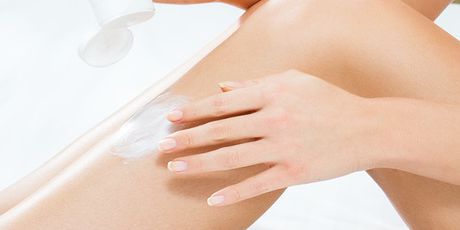General appearance | Commonly affected areas | Seeking medical care | Diagnosis
Dry skin is a very common problem which occurs when the top layer of the skin lacks moisture and/or sebum.It is also called as Xerosis. A more sever condition of dryness is an inherited group of disorder called as Icthyosis. Dry skin can be a temporary and seasonal problem. Often cold winters cause dry skin due to the low humidity level,sites affected are especially exposed areas like your extremities. But for some people, it can be a life-long problem making it a serious healthcare concern; more so if you are elderly and susceptible to dry skin.
General appearance
Symptoms may vary from person to person but generally you will have
- Shrunken, wrinkled and dehydrated looking skin.
- Tight feeling skin especially after your bath/swim/shower.
- Continuously itchy feeling which can be intense sometimes.
- Red looking, rough, and peeling/scaly skin.
- Cracks and lines, some times deep splits that may bleed.
- Chapped lips.
Commonly affected areas
When mild, only extremities and face may have dry skin. But when severe, it can be more spread out. Constantly rubbing and scratching the skin makes it look roughened and coarse. The most commonly affected areas are
- Hands.
- Forearms.
- Lower legs especially around ankles.
- Back.
- Flanks.
Seeking medical care
When dry skin is seasonal and not very severe, high-quality emollients and moisturizers will help. But you must see your dermatologist when
- Your dry skin persists and is painful even after using moisturizers and creams regularly.
- The skin looks red and dry.
- Itching is persistent, severe and interferes with your sleep.
- Skin is split and cracked.
- Skin has open and raw areas from scratching that may get infected.
Diagnosis
A detailed history is taken regarding the onset and nature of the disease.A history regarding any concomitant medical condition like for eg thyroid/diabetes or any other relevant medical history.A detailed drug history because certain anti-hypertensive and anti-hyperlipedimia and many more can cause drug induced dryness.Finally a family history is also significant.Your doctor will do a physical examination to check out the severity of the condition. He will order blood and urinalysis.A skin biopsy is never needed but if its a severe and inherited condition then one may be done.
He will ask all details like
- When was the onset?
- What makes the condition worse?
- What alleviates the dry skin?
- Your diet.
- Your skin care regimen.
- Bathing habits.
He will rule out other diseases that may have similar symptoms like
- Psoriasis.
- Ichthyosis vulgaris.
- Asteatotic eczema.
- Keratosis pilaris.
He will consider all aspects and draw a treatment plan for your dry skin. He may refer to a specialist if needed. Any infection or inflammatory condition will be treated. He will suggest hydration, moisturizing creams and lotions and life style changes.


 Dr. Batul Patel is a celebrity dermatologist and the medical director of The Bombay Skin Clinic an award winning clinic located in South Mumbai & Bandra. She is a passionate and dedicated dermatologist with expertise in all fields of dermatology, trichology and aesthetic dermatology. She has been practicing for more than a decade. Her range of expertise include emsculpt NEO, coolsculpting, fillers, acne treatment, lasers, skin rejuvenation, hair loss, hair transplant, PRP & pigmentation treatments.
Dr. Batul Patel is a celebrity dermatologist and the medical director of The Bombay Skin Clinic an award winning clinic located in South Mumbai & Bandra. She is a passionate and dedicated dermatologist with expertise in all fields of dermatology, trichology and aesthetic dermatology. She has been practicing for more than a decade. Her range of expertise include emsculpt NEO, coolsculpting, fillers, acne treatment, lasers, skin rejuvenation, hair loss, hair transplant, PRP & pigmentation treatments.